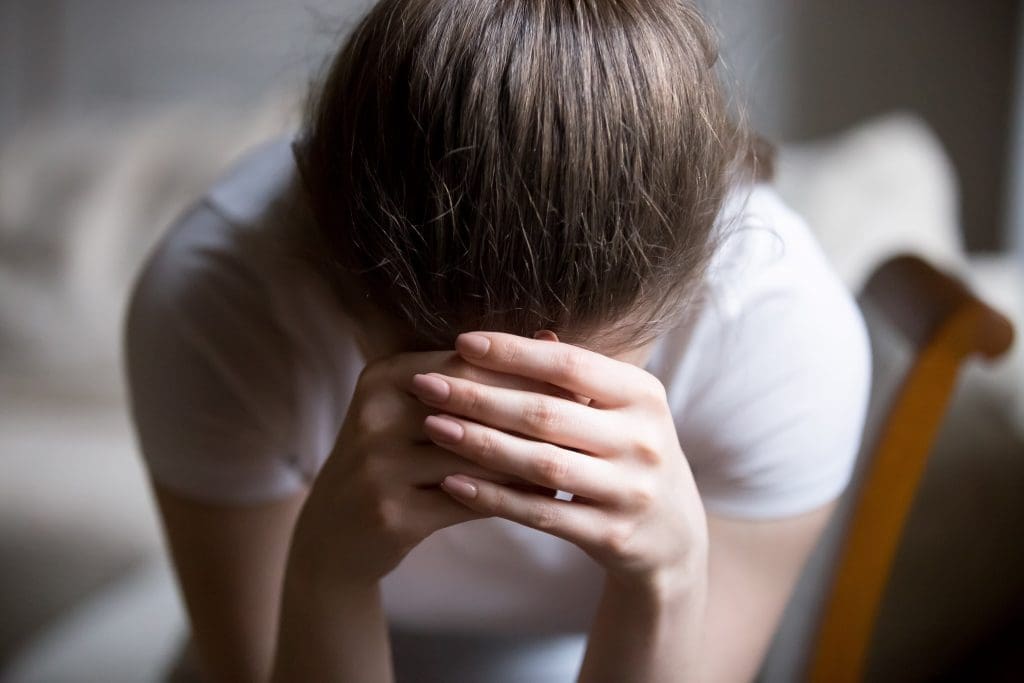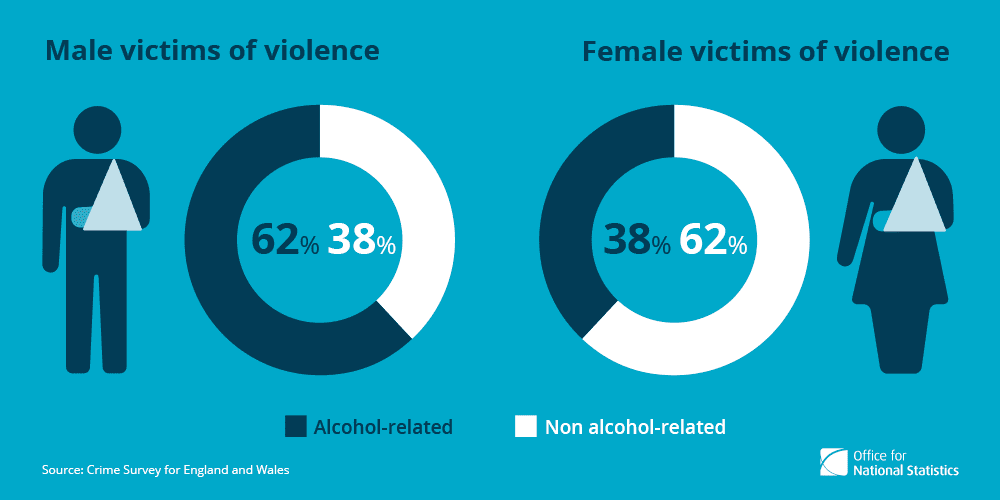Every year over the festive period, cases of domestic abuse and violence increase dramatically.
The reason for christmas and new year being a particularly precarious time is a toxic recipe of extra time spent with loved ones, increased financial pressure to meet expectations and lets not forget the most important ingredient of all – alcohol! (1)
Last year police in Northern Ireland received a staggering 1,782 reports of domestic abuse between 15 December and 16 January. This is an alarming increase of 1,574 being reported on the previous year 2018/19 (2)
It is also important to remember that most cases of domestic abuse go unreported. This is a mere snapshot of what is really going on behind closed doors

With the additional stress of Covid-19 causing worldwide redundancies, broken families, disruption to daily life, increased poor mental health and deaths, we dread to think what this years ‘festive’ season will bring in terms of domestic violence cases.
Here at Delamere we understand that alcohol addiction and alcohol abuse can indeed sadly bring out the worst in people. Whilst we certainly do not condone violence of any kind, we accept that it happens. Instead of sitting back and judging (which is of no help to anyone) we are more interested in saving lives and providing targeted, solution focused treatment that works.
Speaking out saves lives
Speaking out and asking for help as a victim of domestic violence takes immense courage. Sadly some victims never report their circumstances, fearing the consequences of their actions inflicted by their perpetrator will be worse than facing any opportunity to escape the situation.
Not reporting or escaping an abusive relationship tragically only ever leads to the violence escalating. In the worst cases it can cost a sufferer their life.
By the same token, those that suffer from an alcohol problem and aggressive/violent behaviour also struggle to ask for help. They often despise themselves and their actions, yet the shame attached to their behaviour holds them back.
At Delamere, we want to reassure anyone seeking help around a domestic abuse and alcohol problem that we treat all of our guests with the utmost respect, dignity and without judgment.
Obviously, this is a VERY sensitive subject, but ignoring it or judging those that suffer helps no one get well.
As the UKs only purpose built addiction treatment and behavioural wellness centre, we have the resources and knowledge to offer full rehabilitation to anyone suffering from an alcohol problem and either aggressive tendencies and/or trauma related to it.
With the festive season fast approaching, we urge anyone who is suffering to reach out and ask for help. We provide a very safe, secure and confidential haven where our guests can undergo intensive treatment that is uniquely designed specifically to their own individual treatment needs.
What is domestic abuse/violence?
For some this may seem a very needless question, but the truth of domestic abuse is that it goes far deeper than inflicting obvious physical harm.
The Domestic Abuse Bill 2017-19 was introduced in the House of Commons on 16th of July 2019. It is upheld by the law to protect victims of all forms of domestic abuse.
The Domestic Abuse Bill extends the fact that the term ‘domestic abuse’ covers more than just physical harm and violence.
The Domestic Abuse Bill now includes the following behaviours to be unacceptable and lawbreaking:
Psychological control – Psychological control is a type of manipulative behaviour inflicted by the perpetrator to control as many aspects of their victims life. This may include such behaviors as cutting their victim off from family and friends, isolating them from others, controlling what they wear, what they eat and how they present themselves.
Economical and financial control – This is a type of domestic abuse whereby the perpetrator controls their victims access to money and even their own finances, thus narrowing and restricting their options. An example of financial abuse would be a partner taking control of all of the finances and providing a minimal allowance to their significant other, just enough to get by on and no more. A further example would be making a partner solely reliant on them as their only source of accessing money.
Sexual coercion – Sexual coercion is a very sinister behaviour whereby the perpetrator pressurizes their partner into engaging in sexual acts against their wishes. It is not as ‘obvious’ as physical rape to the victim involved and so often goes unreported. No physical force is used. An example of this would be withholding finances, freedom, using manipulation or making threats unless a partner engages in the sexual act of the perpetrators wishes.
Emotional abuse – Emotional abuse includes behaviours that invoke fear, reduce self-esteem or cause anxiety and sadness in their victim. It also includes the use of emotional blackmail.
Threats and humiliation – Threats and humiliation are a common form of domestic abuse inflicted to undermine and control their significant other. This may involve constant put downs, psychological control, shaming their partner and blatant bullying (3)
The link between binge drinking and domestic abuse

Alcohol and domestic violence are commonly linked
Not everyone becomes relaxed or joyous when they drink alcohol. For some it can change their personality completely, or enhance an already undesired trait.
Historically, binge drinking reaches higher levels over Christmas and New Year than throughout the rest of the year. We also already know that Covid-19 has caused more individuals to drink to harmful levels during the lockdown period.
What is exceptionally scary about this coming Christmas is the enormous stress that everyone has felt throughout the coronavirus pandemic this year. As a direct result many individuals have turned to alcohol as a coping mechanism and as a release from boredom.
‘Bubbles’ and lockdown have forced toxic relationships to stay confined within the same space and spend more time together – a very dangerous mix.
This Christmas – A ticking time bomb for domestic abuse victims
In terms of domestic abuse related to alcohol, this year’s Christmas feels like a ticking time bomb for many that suffer.
Alcohol works on the brain by impairing areas that control inhibitions and impulsiveness. It also affects rational decision making. For a person already possessing aggressive tendencies, they are more likely to completely lose control of their actions the more alcohol they consume.
Remembering that alcohol is a toxic drug, even someone who considers themselves to have good morals and principles can find themselves doing the unthinkable whilst intoxicated. The number of drink drivers that are recorded each year are a testimony to how alcohol can warp the most rational of minds.
Those that drink heavily and regularly over a prolonged period of time, or are alcohol dependent, are at even more at risk of exhibiting harmful behaviour, especially when under duress (4)
Where a person suffers negatively from the toxic effects of alcohol they are no more in control of their behaviour than you are. However, this does not mean that they should be excused nor held accountable.
Being held accountable for one’s own actions can often prove to be a pivotal turning point in a person’s life, whereby they finally surrender to the fact that they need help.
Stress and fear can contribute to excessive alcohol intake
It is not only those that inflict domestic violence that can be heavy drinkers but their victims also. A person constantly treading on eggshells, in a heightened state of alert, can also easily turn to alcohol for ‘comfort’
It is not only aggressors that can sometimes struggle with an alcohol problem but their victims are also far more likely to turn to alcohol as a means of coping.
Being regularly exposed to domestic abuse naturally puts a victim in a state of fight or flight. This, combined with feeling trapped, depressed and isolated, are all reasons why a domestic abuse sufferer may start to drink heavily.
If the perpetrator of domestic violence has a problem with alcohol, the victim is even more likely to start drinking to harmful levels. To someone suffering from domestic abuse, sadly it can be a case of – ‘can’t beat them so might as well join them’.
Treating the root causes is key to recovery
At Delamere we have treated many a guest for trauma. They used alcohol as a way of suppressing the memory and feelings associated with an event or events. For a while the alcohol may have worked in their favour but eventually the pressure pot ‘bubbles over’ and all control is lost.
Whilst comprehensively treating trauma takes a great deal of time and work, which can be ongoing for the rest of a persons life, we at Delamere competently start the process of unravelling the past and introducing evidence based healing and coping techniques.
Trauma, especially unresolved trauma and childhood trauma, changes the brain, much like addiction does. There is no magic wand to healing trauma, just as there is no potion or pill to fix addiction.
The good news is that recovery is possible! Here at Delamere our highly qualified team of multidisciplinary medical and mental health experts apply proven and highly effective treatments that can enable a full and lasting recovery.
Surviving domestic abuse over the Christmas period
Aside from contacting ourselves or the police in the event of domestic abuse there are various sources of support that are free and confidential. Please do not suffer in silence.
Domestic abuse helplines and websites open 24 hours a day :
- Refuge – 0808 2000 247
- Womans Aid https://www.womensaid.org.uk/information-support/
- ManKind – helping men to escape domestic abuse –https://www.mankind.org.uk 01823 334244
- Respect men’s advice line – https://mensadviceline.org.uk
- Victim Support https://www.victimsupport.org.uk/crime-info/types-crime/domestic-abuse






